Final Conference "Shared Values and Global Challenges. Ideas for a New Renaissance of Europe"
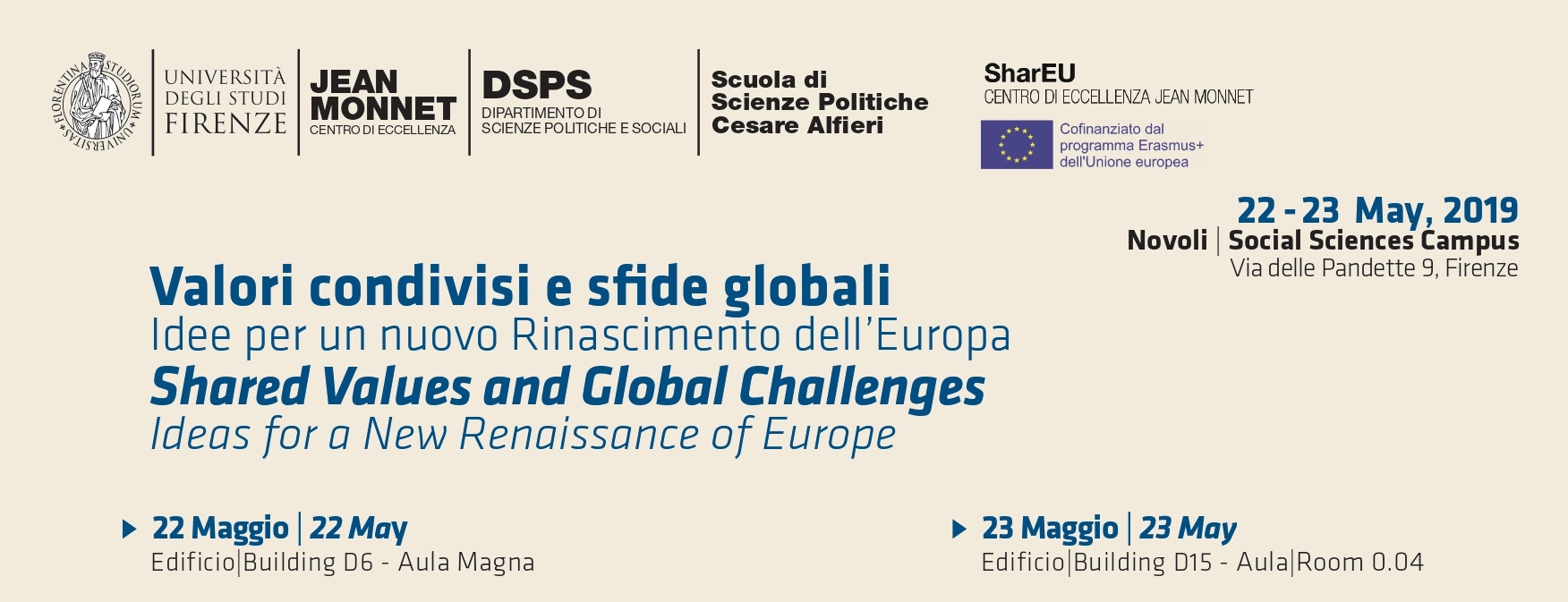
This conference was the final event of the European project “Shared Values and Global Challenges. Toward a New Renaissance for the European Union”, funded by the European Commission at the Jean Monnet Centre of Excellence of the University of Florence.
The reference to the Renaissance should not be understood in a romantic and necessarily optimistic sense, but it is certainly provocative in this political climate. It also contests a mainstream discourse on Europe, which does not look beyond the crisis and sees disintegration as the only process underway. The Renaissance is evoked
because it is a historical period characterized by creative innovation, conflict and change, especially from a social and cultural point of view.
The reference to shared values and global challenges - whose symptoms are migration, emerging authoritarianism, growing inequalities - calls into question the discourse on values and identities that conceives them in a static, essentialist, and a-historical way.
The aim of the conference was to stimulate both reflection and elaboration of ideas from a nucleus of questions: Is the disintegration of Europe irreversible? What are the drives coming from the global world and the internal ones that accelerate/slow down the process? In what relationship are they disintegrating at systemic and social levels? Is it necessary to have a shared homogeneous culture in order to create links and integration in European society or can the diversification and plurality of cultures become productive, for example an antidote to autocratic and populist nationalist drifts? What are the institutional conditions for the emergence of a new social and political formation at European level?
You can find the program of the conference here
Live streaming of the Round table "Communicating Europe"
Interview for Controradio of Professor Laura Leonardi
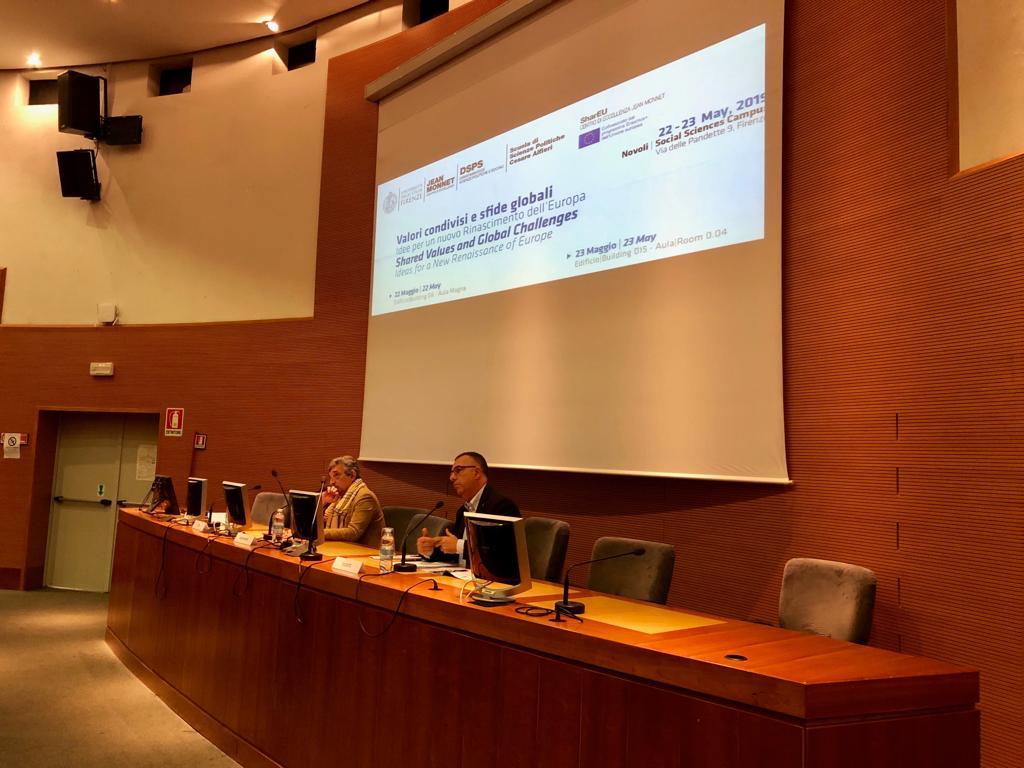
Institutional Greetings by Luca Mannori Dean of the Department of Social and Political Sciences and Fulvio Conti President of the School of Political Sciences “Cesare Alfieri”
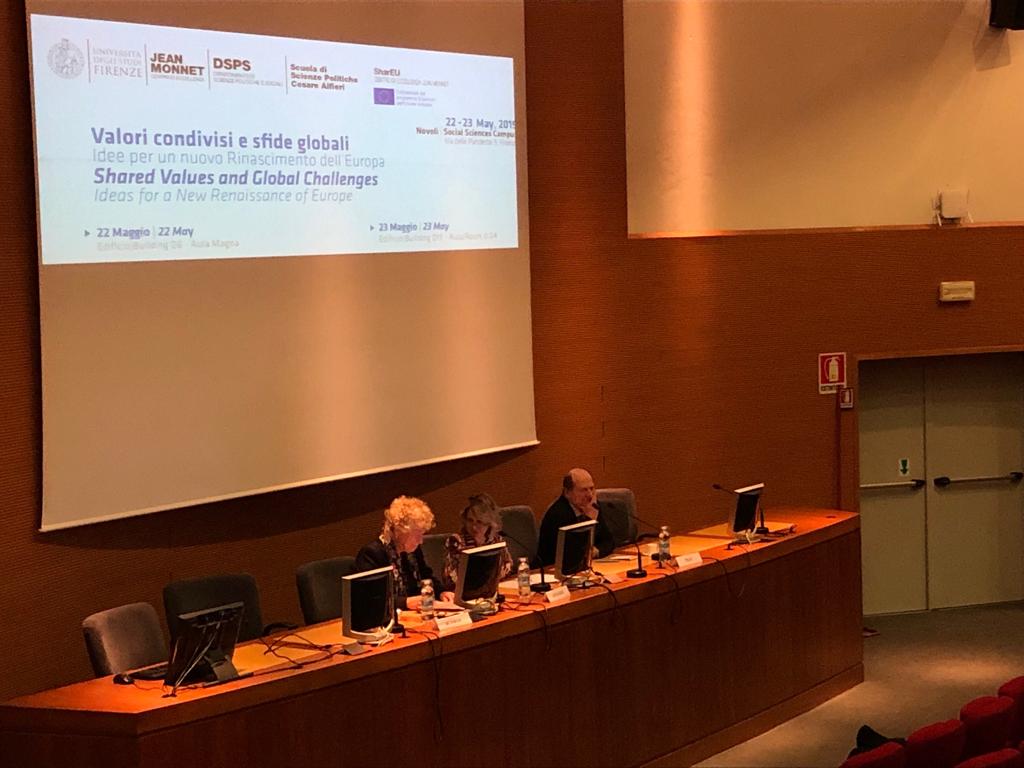
Laura Leonardi, Gesine Schwan and Mario Telò discussing about the potential “creative destruction” of the crisis of Europe
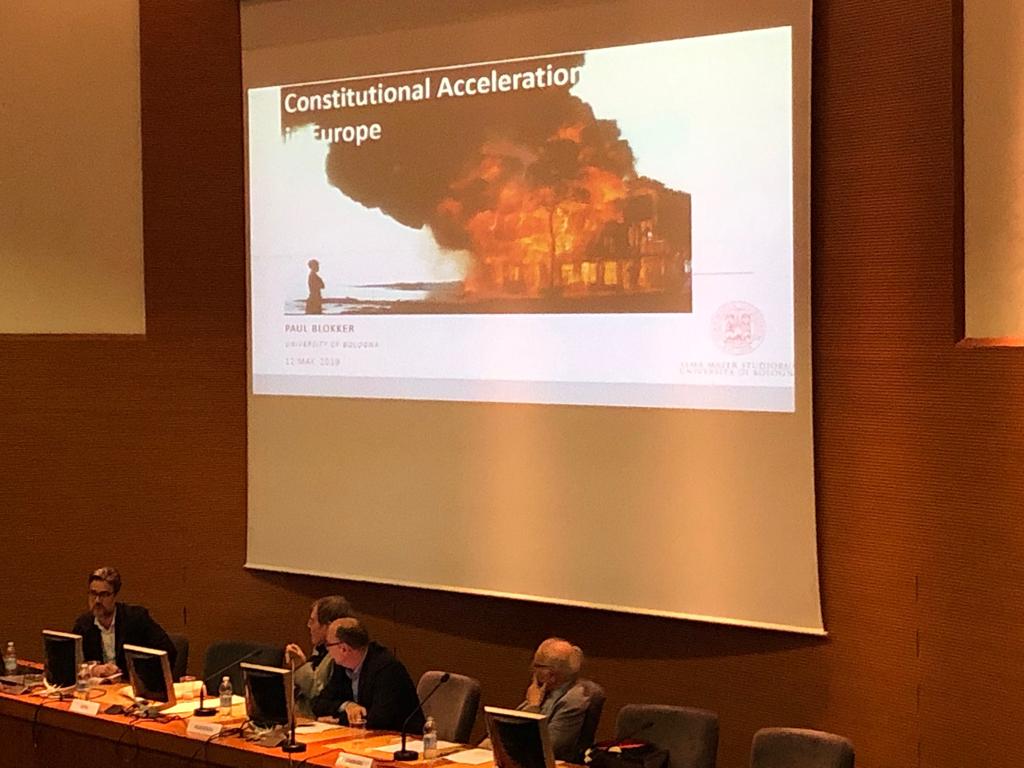
Paulus Blokker, Claus Offe, Massimo Pendenza and Christian Jeorges dealing with the European society between new Nationalisms, Euroscepticism and Eutopeanist rhetoric
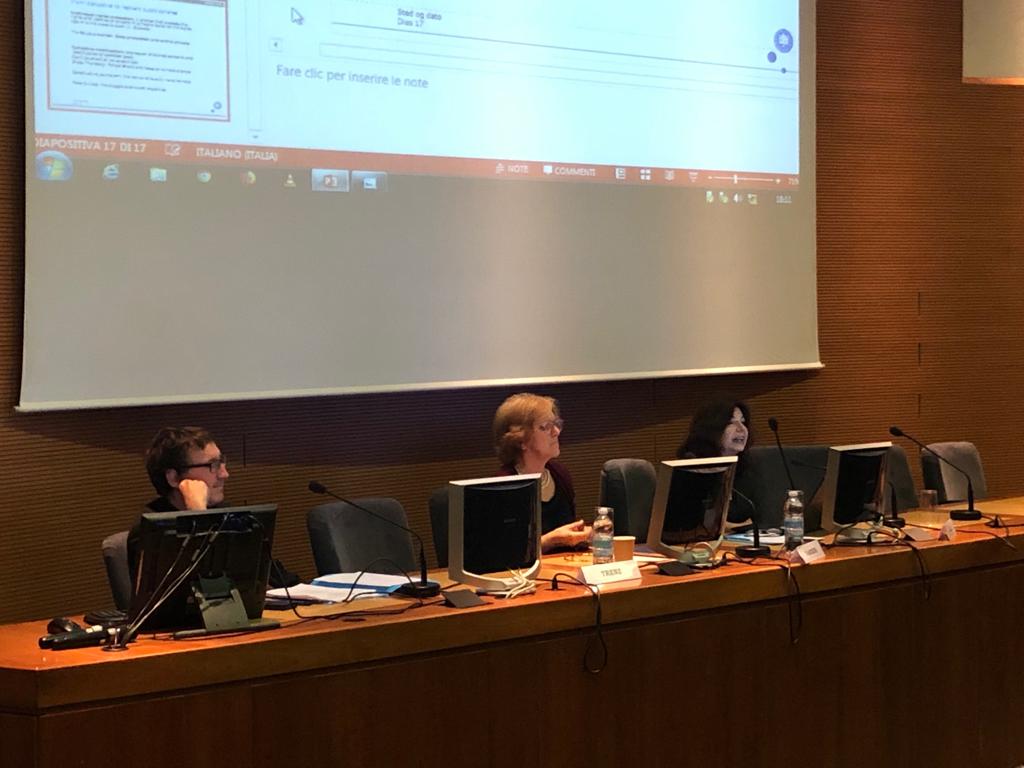
Valeria Fargion, Debora Spini and Hans-Jeorg Trenz dealing with how to build a European public sphere
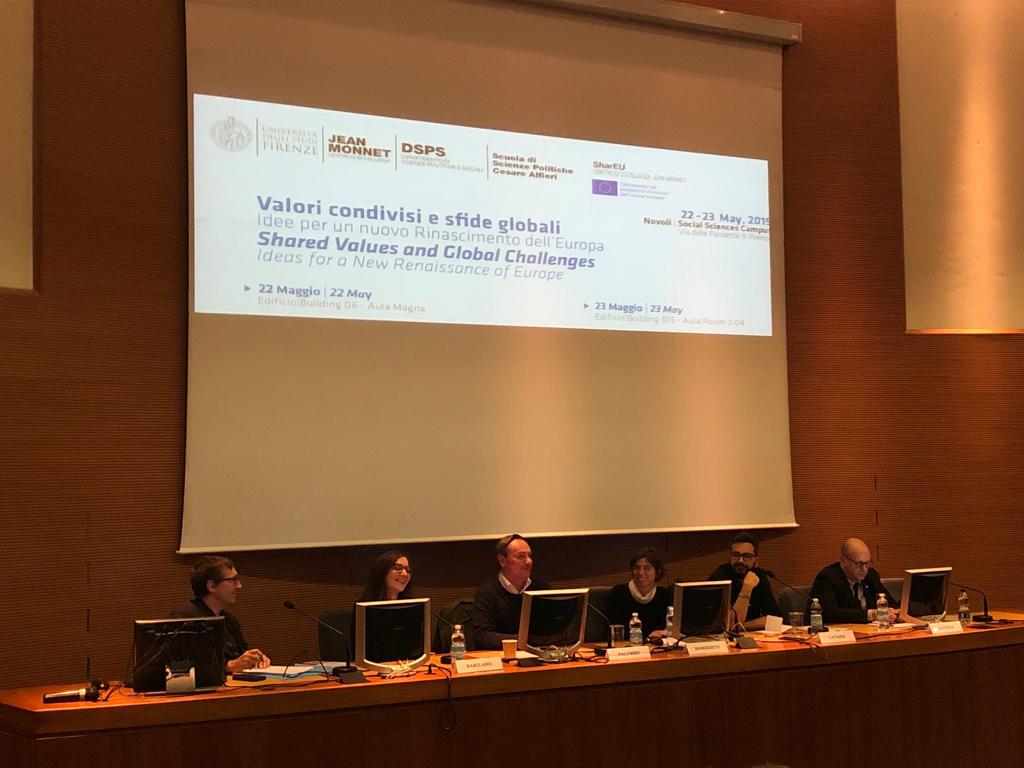
Communicating Europe with Raffaele Palumbo, Rossana Mamberto, Serena Barilaro, Giuseppe Laterza and Fabiano Catania
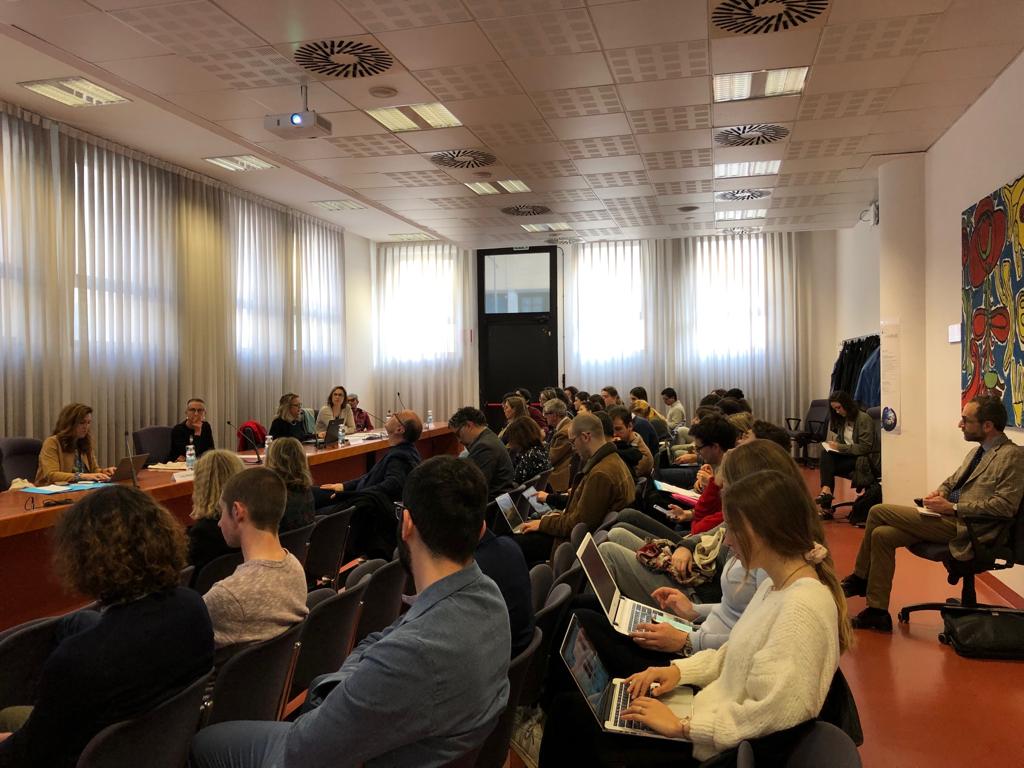
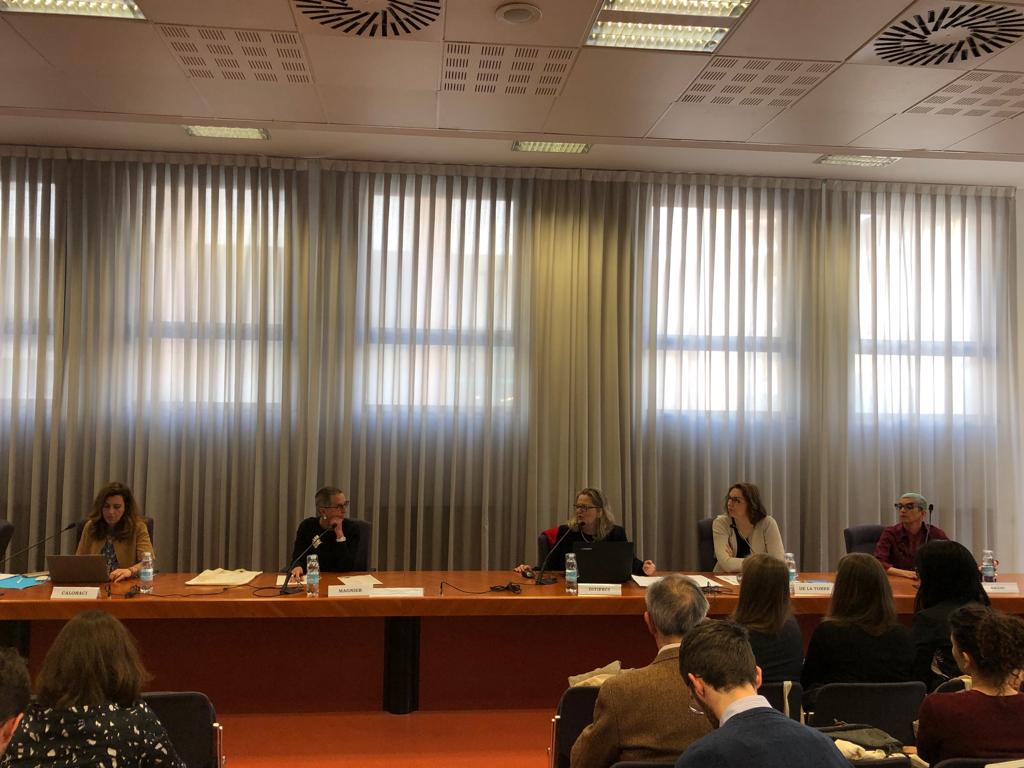
Francesca Ditifeci - European linguistic Identity: presentation of a Manifesto
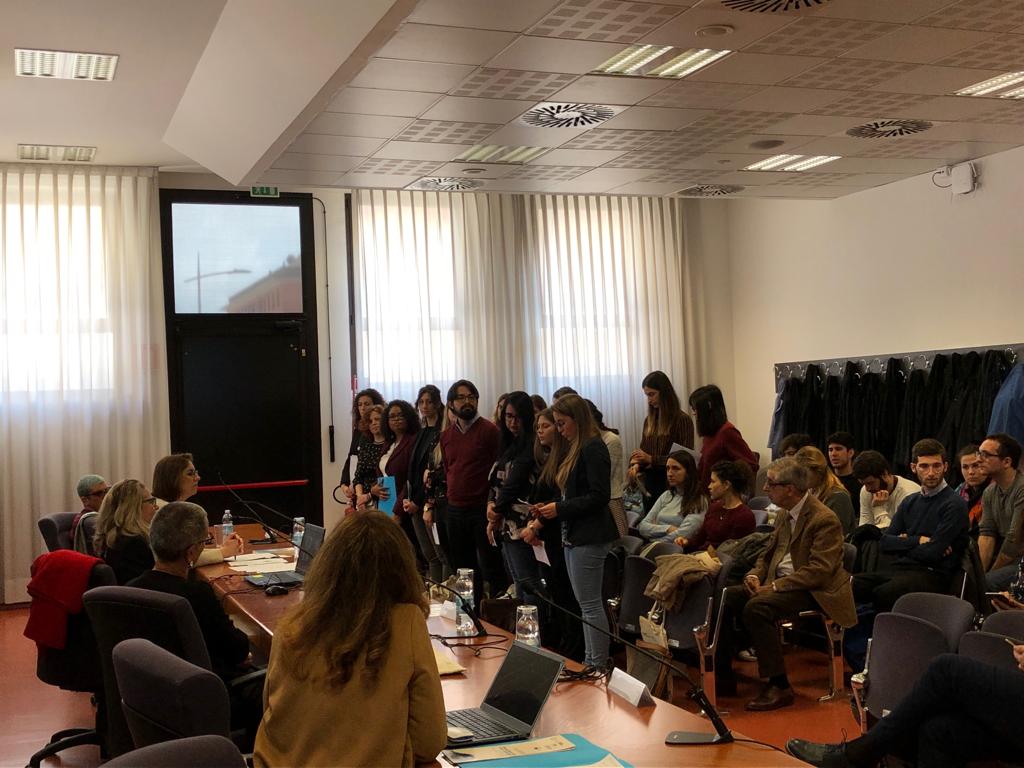
Students of the Linguistic Analysis course of the International Relations and European Studies Master Degree presenting a Manifesto for Europe
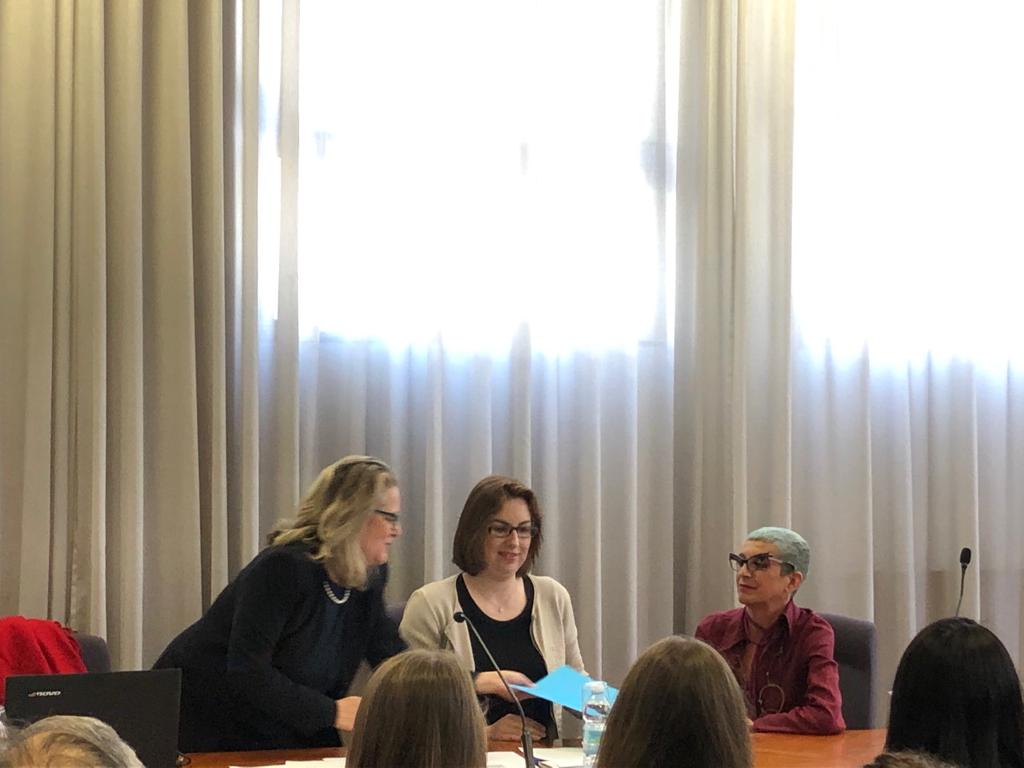
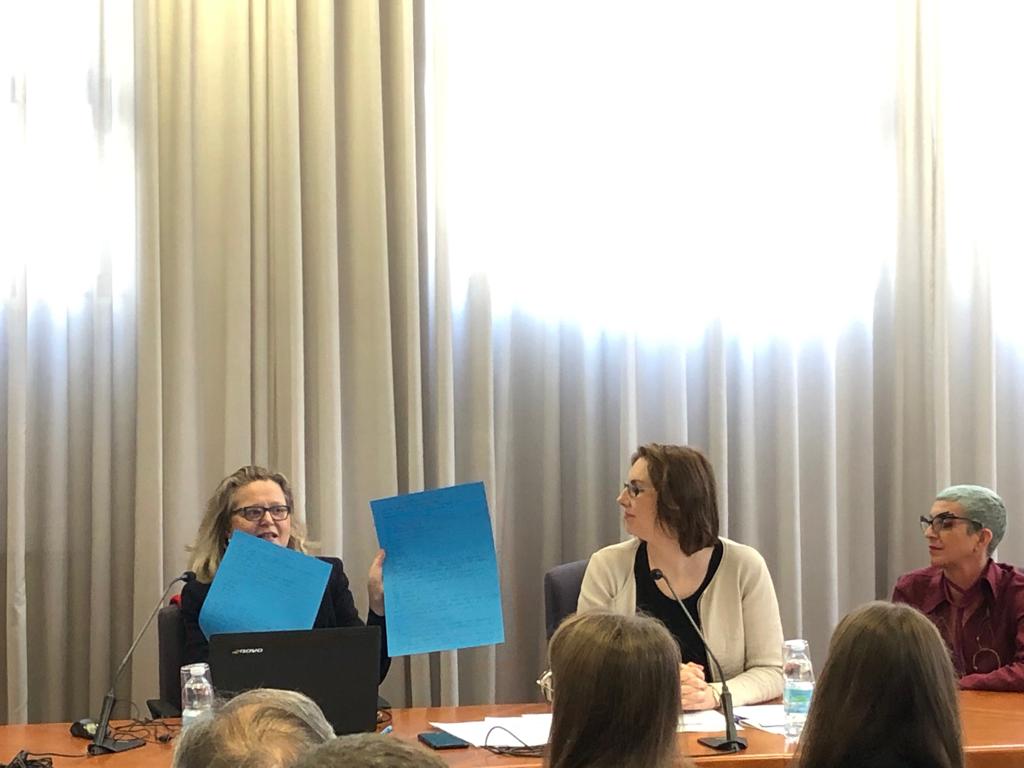
Students gave to Vitoria Martin de la Torre, journalist at the European Parliament, their Manifesto for Europe to be brought to Strasbourg
On 3rd July Victoria Martin de la Torre delivered the students' Manifesto for Europe to Jaume Duch, Director general for communication and spokesperson of the European Parliament
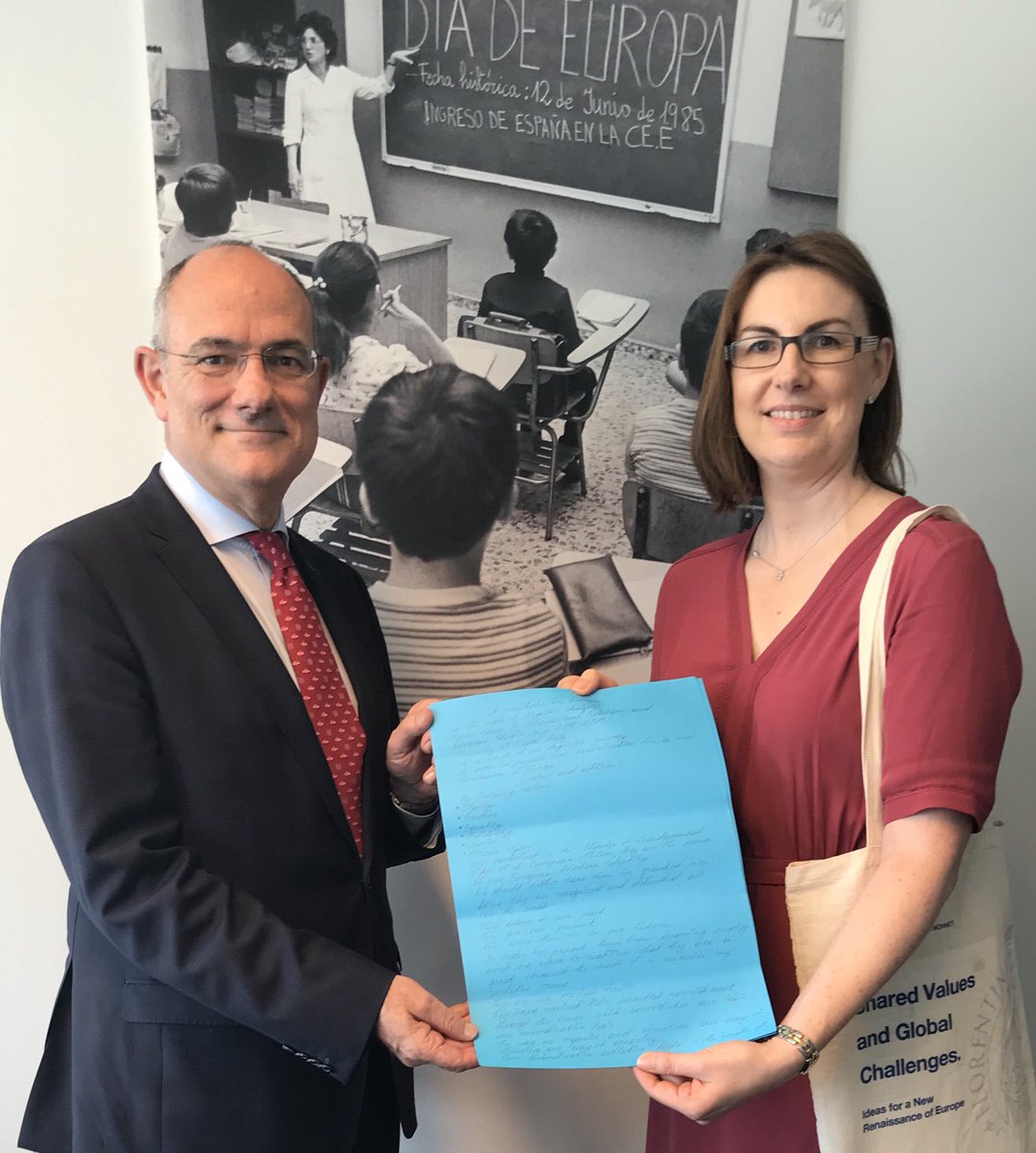
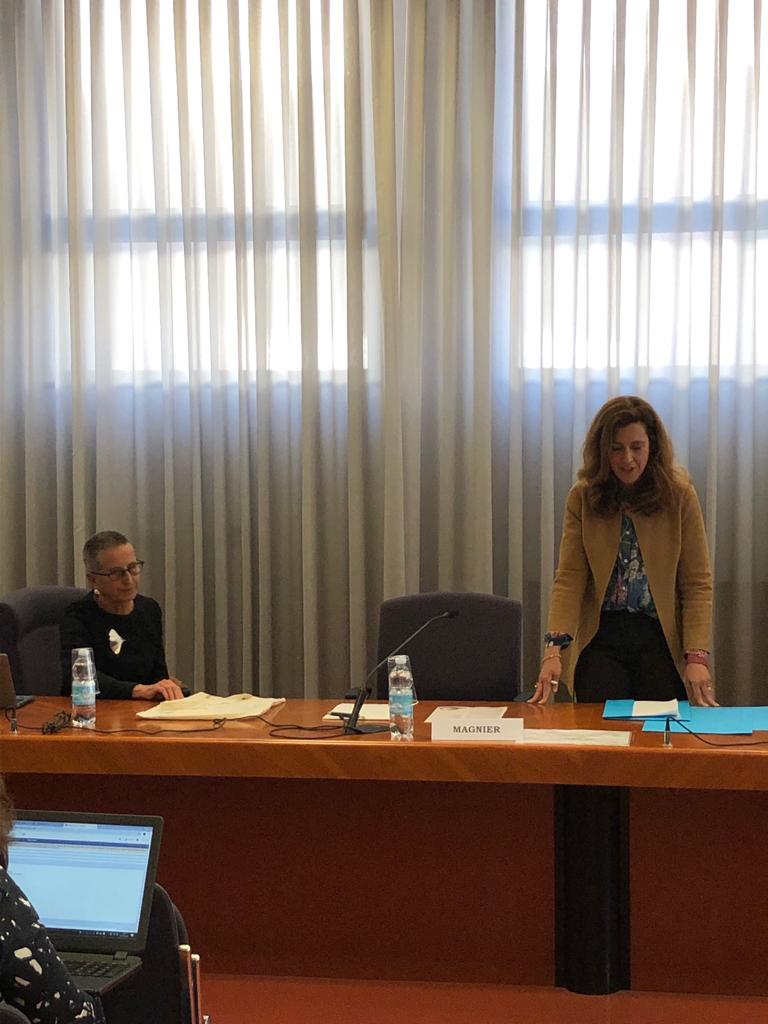
Benedetta Calonaci presenting the project WikiEurope
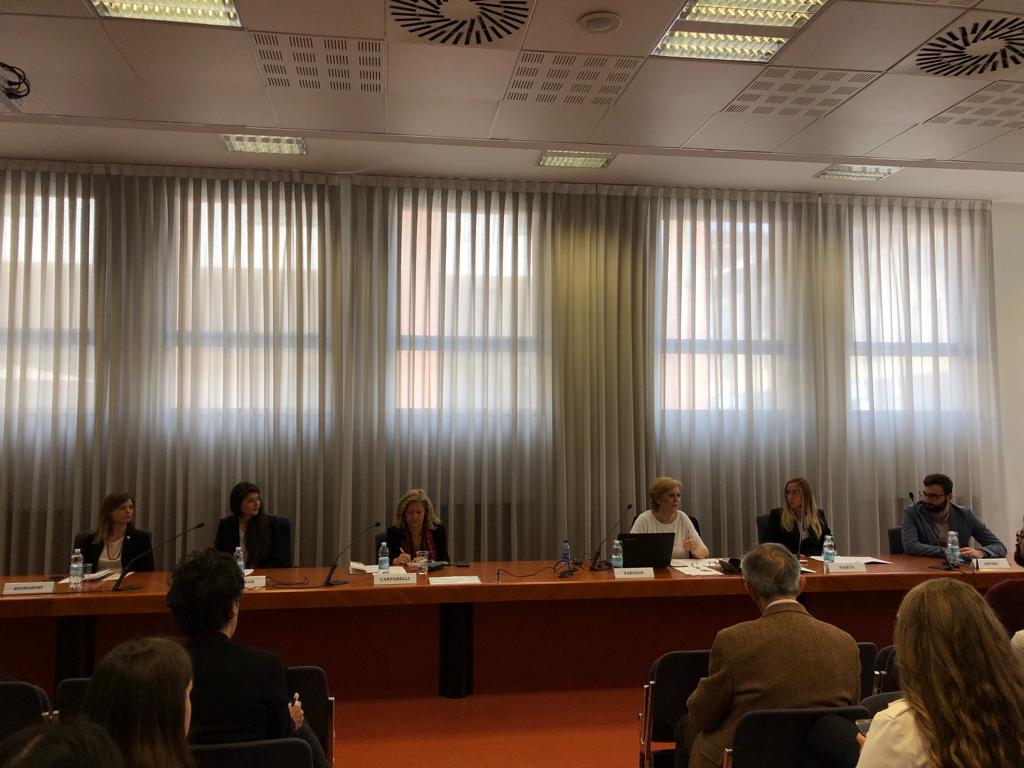
Valeria Fargion and Antonia Carparelli discussing 27 ideas from the Erasmus generations together with students
You can downlod the power points our discussants used during the conference:
last update: 26-Sep-2019


